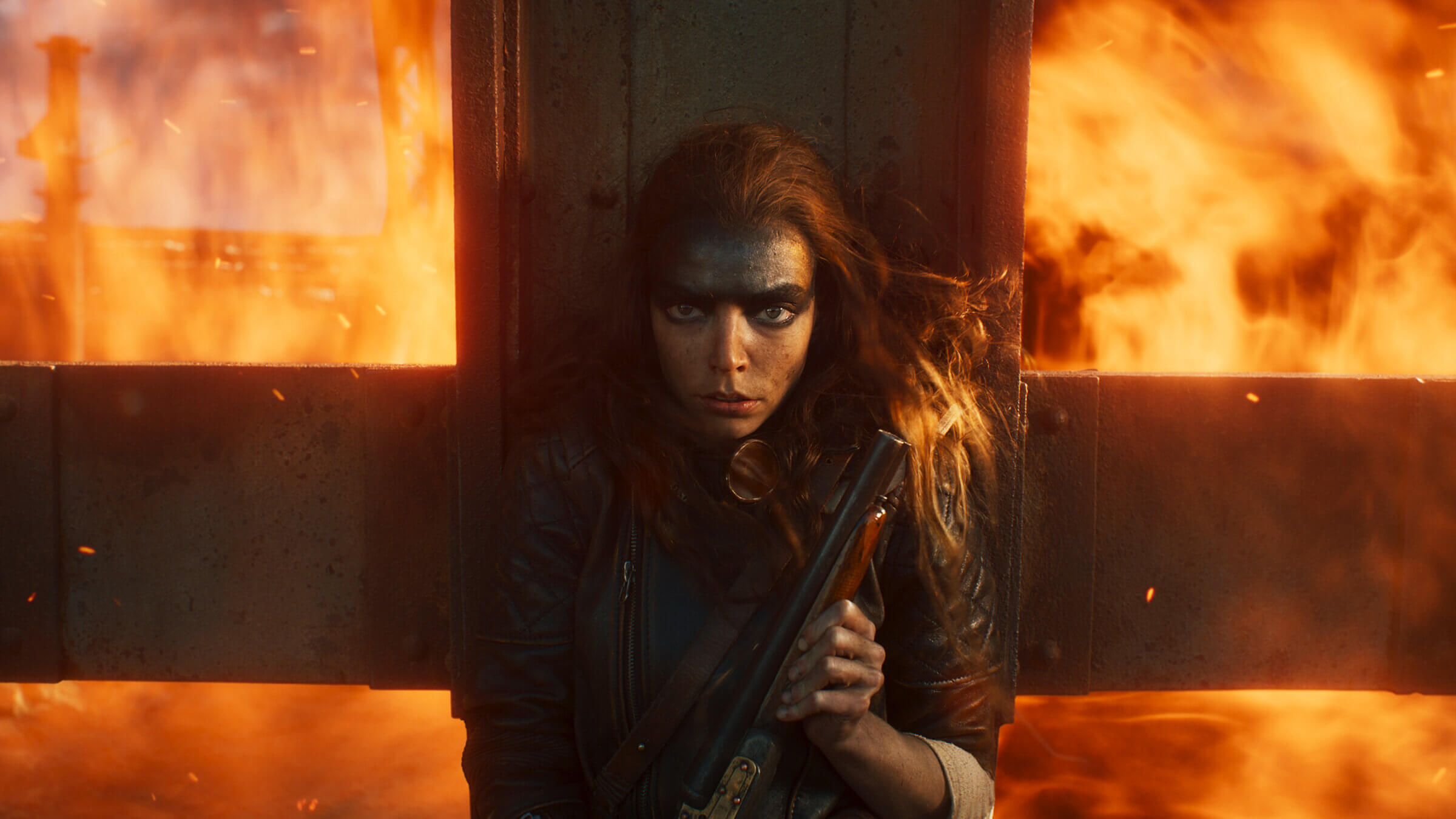‘Furiosa’ is an action movie about cars. Why is there so much biblical symbolism?
The movie leans on biblical references to make up for a lack of plot

Anya Taylor-Joy as Furiosa Courtesy of Warner Bros.
I love a good piece of biblical symbolism. Done well, it adds resonance, deepening the story’s ability to engage with themes or questions humans have been grappling with for millennia — innocence and knowledge, sin and sex, to name a few.
Done poorly, though, it just leaves the audience grasping for a deeper meaning where there is none.
That’s the case with the latest installment in the Mad Max franchise, Furiosa: A Mad Max Saga. The prequel follows the titular woman (Anya Taylor-Joy) who becomes a leader and rebel in the dystopian, strangely car-filled wasteland familiar to viewers of the previous movies. And it opens with a scene of a young Furiosa, having ventured to a forbidden area, reaching up to pluck a ripe peach.
Immediately afterward, Furiosa is kidnapped. Marauders take her out of the lush — dare I say edenic — hidden green garden where she was born, seemingly the only place that escaped the nuclear apocalypse that destroyed the rest of the world. She’s taken into the desert, where warlords in various motorized vehicles feud constantly over limited resources.
She has left a place of goodness for a place of evil; sinfulness and violence are everywhere in this fallen world. Nature is replaced by machines. Innocence is lost.
This is basic Garden of Eden stuff, and it’s dispatched in the first 30 minutes of a nearly three-hour film. The rest is the wild battle scenes between crazily outfitted cars that make the Mad Max franchise what it is. It’s Furiosa escaping various men, Furiosa driving the War Rig, Furiosa seeking vengeance against the man who killed her mother and riding motorcycles over dunes and stalking around dramatically in leather.
All of that is well and good — in fact, it’s what has made Mad Max such a success. The movies have always been rather light on plot, and no one really cares; they’re in it for the cool cars and desert action sequences. Not every movie needs to be deep. Which is why director and writer George Miller should never have attempted to frame the movie with momentous, heavy-handed symbolism.
Why was Furiosa’s mother — who is, of course, named Mary — crucified, hung on a tree and burned alive? It’s a purposeful choice that should carry some deeper meaning, but it doesn’t. Or there’s a prophetic sage covered in tattooed history that looks like it might include Hebrew, but his character is barely developed. And we hardly needed the fruit of knowledge to understand that it is traumatic to go from a place where people live in peace and plants grow to a nuclear wasteland where everyone is constantly at war.
Usually, when a piece of media draws on biblical symbolism, it’s because it’s trying to explore grand themes. The story of the Garden of Eden and the forbidden fruit grapples with the question of how to balance knowledge and innocence, the struggles of dawning self-consciousness and whether knowledge is necessarily tied to sin.
But Furiosa doesn’t really take on those questions. Its biblical references feel like a lazy attempt to add the illusion of depth without actually having to add any substance. (The same could be said of the fact that Furiosa almost never speaks in the film; Miller told Taylor-Joy to act with her eyes in order to lend a sense of mythological gravitas — allowing for writing that doesn’t have to actually build in any mystery beyond meaningful, traumatized stares.)
At the end of the movie — spoiler alert — Furiosa seems to have planted the pit of the peach from the first scene into the genitals of the warlord who initially kidnapped her. It’s growing the fruit of innocence or knowledge from the very symbol of evil.
Maybe there’s actually some grander message about innocence and knowledge, or sex or humanity there — something about how to build a new Eden in a fallen world. Probably not though.
A message from our Publisher & CEO Rachel Fishman Feddersen

I hope you appreciated this article. Before you go, I’d like to ask you to please support the Forward’s award-winning, nonprofit journalism so that we can be prepared for whatever news 2025 brings.
At a time when other newsrooms are closing or cutting back, the Forward has removed its paywall and invested additional resources to report on the ground from Israel and around the U.S. on the impact of the war, rising antisemitism and polarized discourse.
Readers like you make it all possible. Support our work by becoming a Forward Member and connect with our journalism and your community.
— Rachel Fishman Feddersen, Publisher and CEO






























